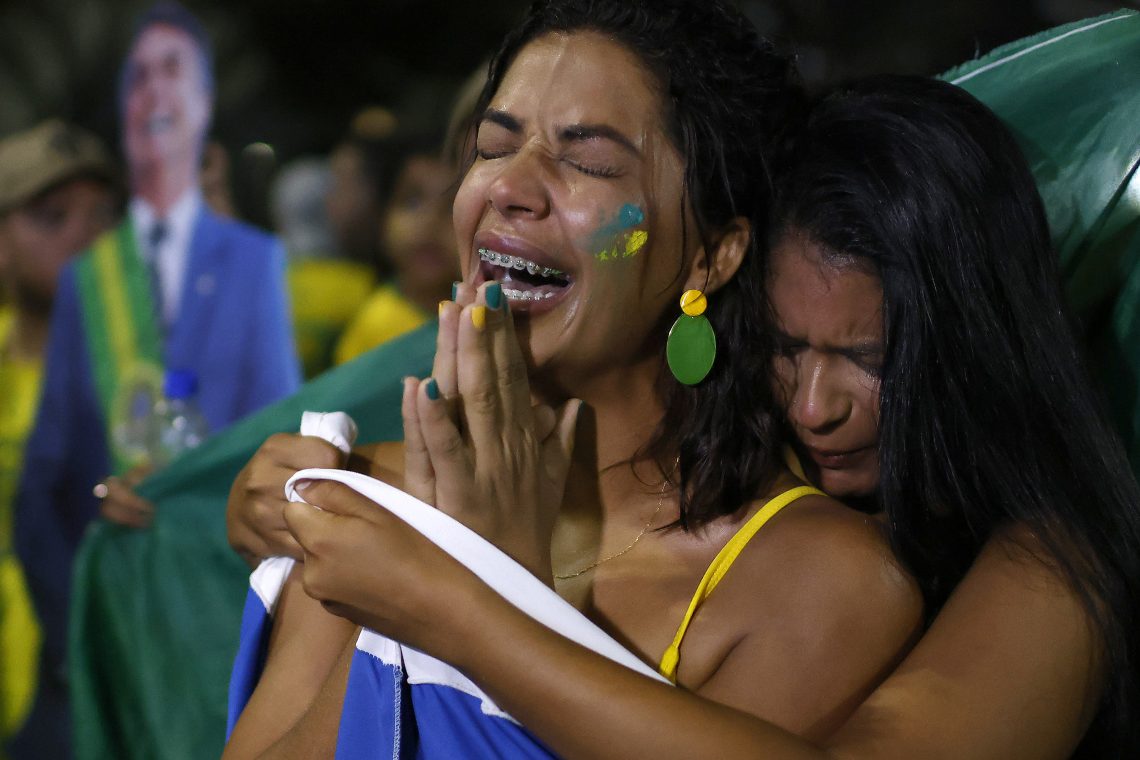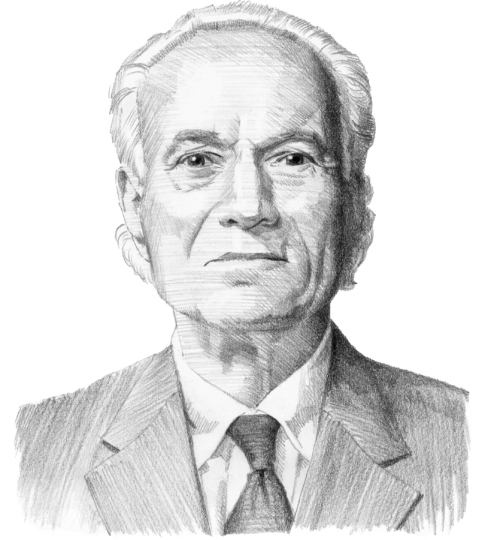Postelection Brazil: The house is still divided
Brazilian voters narrowly retired a controversial conservative incumbent to give a third term to a bearded socialist who had presided over epic corruption. Do not expect bright results.

In a nutshell
- Former President Lula returns to power in Brazil with a weak mandate
- The political divisions in Brazilian society have only deepened
- The president will have limited means for social policies his backers expect
In only the latest example of Latin America’s anti-incumbent backlash, former Brazilian President Luiz Inacio Lula da Silva (known simply as Lula) narrowly defeated incumbent Jair Bolsonaro in the October 30 second round of Brazil’s presidential elections, with 50.9 percent of the vote.
The polarizing two-man race ended with the far-right Mr. Bolsonaro becoming the first president to lose a reelection bid in modern Brazil and the socialist Lula the first to be elected to a third term.
For his supporters, Lula’s victory marks a triumph for Brazilian democracy as well as investors. The president-elect has promised to stabilize the economy, increase environmental protections for the Amazon rainforest and reverse several of his predecessor’s policies. Nonetheless, congressional opposition will probably limit Lula’s legislative agenda, and he will find it challenging to unite a deeply divided electorate.
Narrow victory, weak mandate
Lula’s narrowest victory in modern Brazilian presidential elections was far more modest than his supporters would have liked, or initial polls indicated. In the first-round elections, held on October 2, he outdistanced incumbent Bolsonaro by more than five percentage points – 48.4 percent to 43.2 percent. Clinching 50 percent of valid votes would have allowed Lula to avoid a runoff. All signs pointed to the challenger’s resounding victory in the second round. The other candidates, the third- and fourth-place finishers Simone Tebet and Ciro Gomes, ex-president Fernando Henrique Cardoso and several high-profile orthodox economists all pledged support for Lula. This was supposed to give him an easy victory. However, Mr. Bolsonaro still managed to close the gap, perhaps by increasing turnout among nonvoters from the first round.
Lula held off the challenge to make history. As Brazil’s president between 2003 and 2011, he remains a transcendent figure for many of the country’s poor. The unprecedented social spending spree and class mobility that many enjoyed under his presidencies in the 2000s certainly figured in his popularity at the polls. For example, the final vote tally shows that Mr. Bolsonaro earned majorities in wealthier, whiter and more developed states. At the same time, Lula was victorious in the country’s poorer and blacker northeast.
The right made massive gains in congress, with Mr. Bolsonaro’s Liberal Party becoming the largest bloc in the fragmented Chamber of Deputies and the Federal Senate.
Voter repudiation of an incumbent with extensive political baggage from a series of scandals and Covid-19 denialism to violent and antidemocratic rhetoric, combative governance and more – also seemed to play a role. To put things in perspective, despite having spent nearly two years in jail on a corruption conviction (Brazil’s top court later annulled the verdict), Lula was the preferred candidate of the United States government, Wall Street and international financial institutions. They were wary of Mr. Bolsonaro’s nationalism, protectionism and isolationism.
Read more of Latin America’s graft problem
Corruption in Latin America
Voters, however, did not reject the ideological right. “Bolsonarism” was successful at other levels of government, thanks in part to the increasing power of Brazil’s evangelical voters. The right made massive gains in congress, with Mr. Bolsonaro’s Liberal Party becoming the largest bloc in the fragmented Chamber of Deputies (99 of 513 seats) and the Federal Senate (13 of 81 seats). Moreover, in gubernatorial elections, Bolsonaro-supported candidates won in 14 of Brazil’s 27 states – including the country’s three most populous states of Sao Paulo, Rio de Janeiro and Minas Gerais. Several of Mr. Bolsonaro’s former ministers were elected to the upper and lower houses of congress. That suggests a relatively weak mandate for Lula – or at least a far weaker one than he enjoyed as president in the 2000s.
Divisive campaign
The election did not help improve public trust in the country’s political institutions or heal any divisions. Instead, Brazil is more ideologically divided now than it has been at any point since its return to democracy in 1989. The toxic campaign was marked by hate speech, misinformation and political violence, including three separate murders of Lula supporters by Bolsonaro supporters.

After independent pollsters underestimated Mr. Bolsonaro’s first-round performance, they became the target of political attacks. Among other official actions, the Ministry of Justice ordered the federal police to open an investigation into pollsters on antitrust grounds.
Adding to the chaos, Mr. Bolsonaro continued to make long-standing and unfounded claims of vote rigging. He consistently cast doubt on the legitimacy of Brazil’s electronic voting system without showing evidence. Many Brazilians, as well as international observers, were worried that if he lost, the president would refuse to concede – or worse, that his military allies might even carry out a coup.
As with other global leaders, Lula also faces social pressure to pursue an economic policy that combats inflation and high prices of essential goods
This worst-case scenario did not materialize. And while Mr. Bolsonaro did not immediately recognize the opponent’s victory or officially concede, he did not publicly challenge the results. Prompt recognition of the election results by allies, such as Chamber of Deputies president Arturo Liras, the newly elected governor of Sao Paulo, Tarcisio de Freitas and military brass may have left Mr. Bolsonaro with little ability to engage in electoral denialism.
Governing priorities and challenges
The new administration’s stated policy priorities include the renewal and expansion of the Bolsa Familia conditional cash transfers program, an increase in the minimum wage, an overhaul of the tax system and a repeal of Brazil’s constitutionally mandated spending cap. Overall, Lula’s campaign manifesto included about 90 positions. As with other global leaders, he also faces social pressure to pursue an economic policy that combats inflation and high prices of essential goods. Outside the economic realm, the president-elect has pledged to curb deforestation, increase protections for the Amazon region and accelerate the development of Brazil’s green economy.
It is unlikely that President Lula will be able to achieve all of his aims. Extreme fragmentation and the partisan composition of the federal legislature will make governability difficult. Low economic growth and the spending ceiling will not help either. As many as 17 parties can claim representation in the Senate and a whopping 23 in the Chamber of Deputies, with the president’s left-wing Workers’ Party (Partido dos Trabalhadores, or PT) holding only seven and 56 seats, respectively, in the two bodies. Like Gustavo Petro in Colombia, Brazil’s president-elect will need to construct a workable unity coalition before taking power on January 1, 2023, and then sustain that coalition while in office.
His best chance to pass legislation will be with the support of the ideological center and at least a part of the Brazilian right, so political pragmatism will be necessary. Immediately after his victory, Lula began negotiations with the Social Democratic Party (PSD), the Brazilian Democratic Movement (MDB), and Uniao Brasil, all part of the ideologically amorphous Centrao parliamentary bloc. Also, he chose his center-right vice president-elect, Geraldo Alckmin, to lead his transition, thus signaling an attempt to appeal to parties across the political spectrum. The government will forge these coalitions by distributing ministerial portfolios, other bureaucratic appointments and pork. Nominations of center-leaning economists have already reassured financial markets.
Nonetheless, holding together such an unwieldy alliance, let alone passing ambitious legislation, will be a herculean task. The Brazilian congress has tilted to the right, and the opposition is much more well-organized this time than during Lula’s previous terms, and this leaves him much less margin for error.
The incoming administration is expected to be more moderate than the leftist Workers’ Party-led administrations of 2002-2016.
Economically, the president-elect faces a difficult fiscal situation. Instead of enjoying an unprecedented commodity boom that allowed for massive investments in social spending, Lula will have to grapple with high inflation, low growth and the lingering economic effects of the Covid-19 pandemic and Russia’s war in Ukraine.
Scenarios
The incoming administration is expected to be more moderate than the leftist Workers’ Party-led administrations of 2002-2016. During the campaign, Lula emphasized that his government would not be one of just the Workers’ Party. The need for support from moderate politicians, members of the business sector and other nontraditional allies will help push his government closer to the center. It is certain that Lula will use his executive power to undo many of the Bolsonaro-era changes and increase the size of the state. He can use decrees to reestablish protections for the Amazon, roll back Mr. Bolsonaro’s mano dura (firm hand) security policies and repeal the former president’s executive decrees promoting gun ownership.
Internationally, the new Brazilian government is expected to restore dialogues around democracy, human rights and the environment with the U. S. and the European Union. This process started at the United Nations November climate change conference (COP27) in Sharm El-Sheik in Egypt, the president-elect’s first foreign trip. He will also reinforce ties with Latin America’s other left-wing governments, although the country harbors fewer hegemonic ambitions today than it did under Lula in the past. Brazil will also, at least rhetorically, call for rethinking drug policy.
Scenario 1: Hard road ahead
What the new administration achieves will depend on a constellation of legislative forces, social pressure, international context and economic constraints. Within this context, the base scenario is for President Lula to persevere with limited policymaking successes, although failing to reach the heights of his first term.
From the outset, he will need to balance centrist demands with his left-wing base in a more challenging economic context and with less legislative maneuverability. For instance, the business community and possibly Lula’s economic advisors will demand balanced budgets. At the same time, his social base and union supporters await increases in social spending and a return to the golden days of the 2000s.
The government will turn toward centrist advisors and an orthodox economic policy while also managing to increase social spending. However, growth will be slower than in the 2000s, and social benefits will not be as generous.
To accomplish even that much, the president will need to bypass the spending ceiling, something he can do in one of three ways: a) obtain a waiver with the support of 60 percent of the Chamber of Deputies and 60 percent of the Senate; b) change the 2023 budget and redirect legislative resources to the new government; and c) obtain consent from the federal accounts court to spend via executive decrees .
President Lula appears to prefer the first route, although failure to gain legislative support would push him toward unilateralism.
Scenario 2: Lucky break
If commodity prices rise, economic growth will accelerate and bring a needed infusion of cash. That would ease the burden of persistent inflation and allow the government to pay its debts. A more popular President Lula would also be better positioned to negotiate with his legislative allies and opponents, enabling him to pursue his ambitious agenda. Economic prosperity and policy success would also help marginalize Mr. Bolsonaro and temper the public’s temptation to return to his policies.
Scenario 3: Continuing limbo
By contrast, an equally plausible possibility is that prolonged supply chain problems and a continued global economic slowdown severely hinder the Lula administration’s ambitions and possibly threaten the president’s political survival. Fiscal excesses committed by the Bolsonaro government will contribute to a deteriorating economy, a result which voters will inevitably pin on Lula.
The worst-case scenario
Under this script, the economic recession is compounded by extreme legislative difficulties as Lula’s coalition breaks down, the Bolsonarista opposition proves intransigent, and the so-called “secret budget” limits the pork that the government can use to persuade centrist or nonideological legislators to support it. Attempts to rebuild legislative alliances may result in further corruption allegations. In the end, this would reignite the impeachment talk that has persisted since Lula’s handpicked successor, Dilma Rousseff (2011-2016), was ousted from office, and further damage to the PT and the Brazilian left.
Especially under such a scenario, not dominant but impossible to exclude, it is hard to feel sanguine about Brazilian democracy or Lula’s prospects for healing the divided nation.









